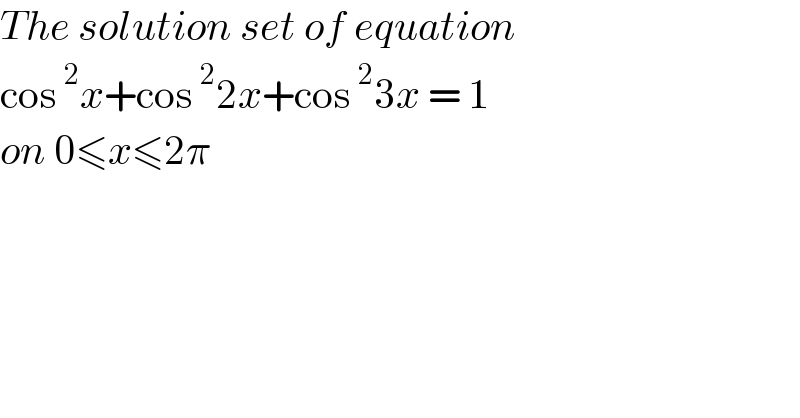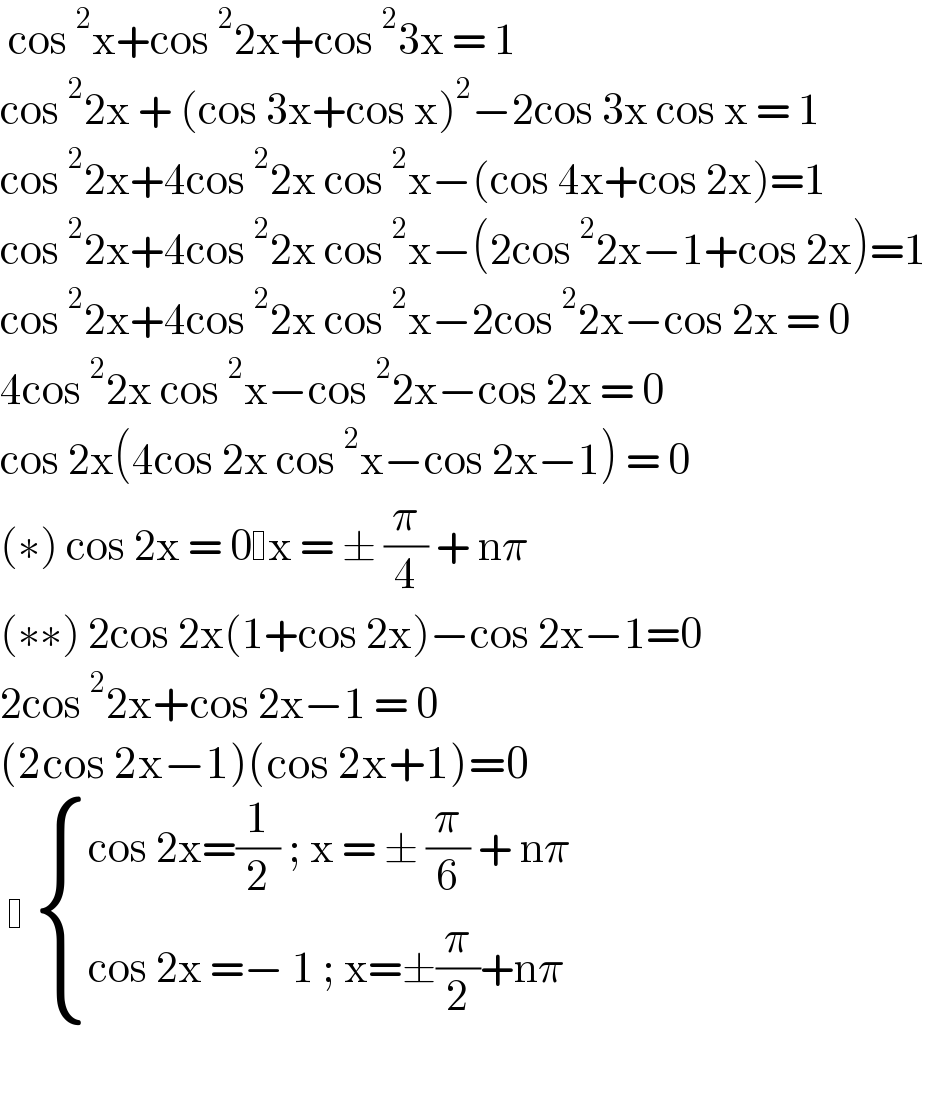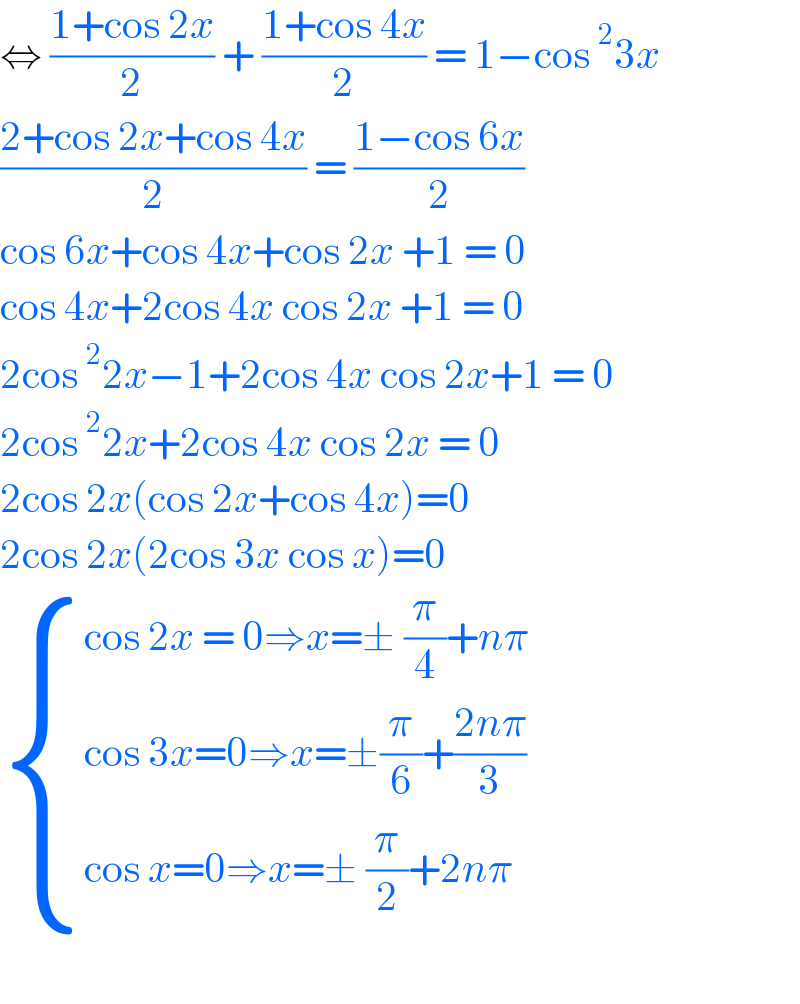
Question and Answers Forum
Question Number 137382 by bramlexs22 last updated on 02/Apr/21

Commented by MJS_new last updated on 03/Apr/21

Answered by EDWIN88 last updated on 02/Apr/21

Answered by liberty last updated on 02/Apr/21

| ||
Question and Answers Forum | ||
Question Number 137382 by bramlexs22 last updated on 02/Apr/21 | ||
 | ||
Commented by MJS_new last updated on 03/Apr/21 | ||
 | ||
Answered by EDWIN88 last updated on 02/Apr/21 | ||
 | ||
| ||
Answered by liberty last updated on 02/Apr/21 | ||
 | ||
| ||